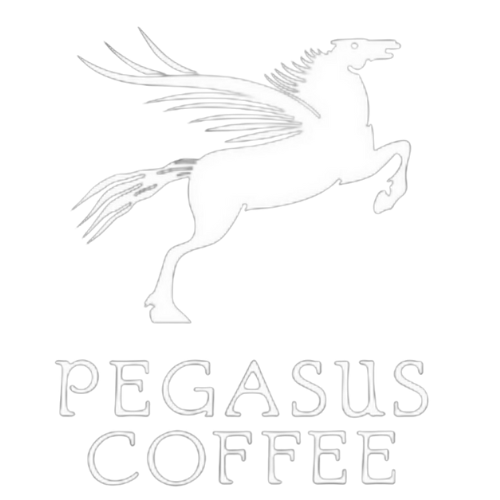Imagine you go out for a nice dinner and before you get started on the menu, you take a look at the wine list. Wine options from across the world: Chile, Australia, South Africa. Some of them give a generalized description; others might name the originating vineyards and perhaps even the vintners responsible. Their tasting notes mention words like “fruity” and “earthy” and “floral”. The prices range from $5-$20 per glass.
The Similarities
As we’ve looked for ways to demystify the world of coffee for newcomers, we’ve found wine to be a useful analogy. Wine and coffee share a number of similarities. For example, did you know both come from fruit? Wine is made from grapes and coffee from “cherries”. The first image pair below provides a visual comparison.
Secondly, coffee and wine both grow in conditions that affect the final taste. This terroir is as important in coffee as it is in wine—the volcanic soils of Guatemala and Costa Rica, for example, provide a fertile, mineral-rich environment perfect for coffee plants to thrive. It’s also why coffee grown in Rwanda can taste so different from the same variety grown in Brazil—much like how a chardonnay grown in South Africa might taste different from one grown in France.
Processing is yet another way coffee and wine share similarities. A coffee producer can use the natural or washed processing method (or an increasing number of hybrid methods) which will affect the final brew. Likewise, the way that grapes are processed into wine—maceration time, or using oak barrels rather than steel tanks—have a big impact on the sorts of flavors that end up in your glass.
Finally, tasting and scoring both follow very similar processes for both coffee and wine. The second image pair below highlights the similarities between the Wine Aroma Wheel and the Coffee Taster’s Flavor Wheel, used by professionals in both fields to evaluate the quality and nuances of their respective beverages.

So, yes, wine and coffee share a number of important commonalities. Yet, like most useful frameworks, the wine-to-coffee analogy does have its limits and exceptions.
The Differences
There are a few, very important differences between wine and coffee, most notably related to storage and final beverage preparation. While wine can be bottled at source and stored for years, coffee – to be properly enjoyed – must be consumed within 3-4 weeks of roasting. Vacuum-sealed packaging can extend the shelf life of coffee some, but to nowhere near as long as for wine or other beverage categories. Unlike wine, coffee generally does not get better with age.
Moreover, to ensure your morning cup is as enjoyable as your evening glass, your coffee needs to be freshly ground before brewing. We’ve written previously on the importance of this topic. And then, it needs to be evenly extracted as it’s brewed, which puts a bit of responsibility on the preparer to get it right. In this way, cooking can be a useful analogy, since cooking requires a bit of time and skill to ensure the final product tastes great. Don’t be fooled – no matter how easy great baristas make it look, preparing coffee is not as simple as uncorking a bottle and pouring. The best baristas spend years perfecting their craft so they can make producing delicious beverages for long lines of grateful customers appear effortless. Fortunately, in the comfort of our homes, there’s a lot less pressure and we’re usually making coffee for just a few people. But the principle still applies – preparing coffee requires a bit of education and the help of a couple of tools to do well.
So, What Does This Mean For My Daily Cup?
This summer, as we spend more time at home, many of us are considering how to bridge the gap between the great coffee others have made for us in the past, and the coffee we’re currently equipped to prepare by ourselves.
That’s why, at Pegasus, we’re building out our Great Coffee At Home portfolio of products and services — to support your daily home brewing efforts. We want you to enjoy your morning coffee as much as any other beverage you consume throughout the day. The grinders, SCA-certified brewers, DIY brewing demos, and more, have been hand-picked and thoughtfully developed to guide you through the coffee preparation process. Because we’re passionate about helping as many people as possible discover the delicious world of specialty coffee. It may take a little more effort than wine, but trust us — it is every bit as rich, varied, flavorful and worth it.

